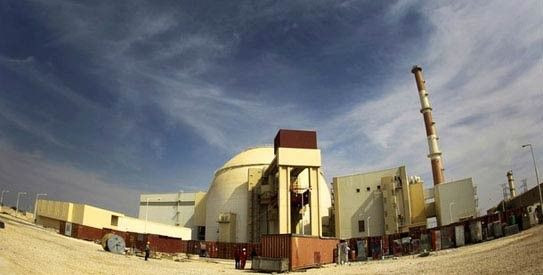Israel's Bullish Rhetoric On Attacking Iran Is A Message To Washington, Not Tehran
Analysis

Is Israel poised to attack Iran or is the recently ramped-up rhetoric aimed at sending a message to Washington?
Apparently,after days of conjecture that an attack would take place before November, speculation abounds that Israeli Prime Minister Benjamin Netanyahu's recent tough talk is simply Israel doing what it has done before: rattle sabers toward Iran in order to urge global leaders on policy decisions.
Netanyahu is paying a visit to the U.N. General Assembly in New York next month where he will likely bump into U.S. President Barack Obama, or at least expect him to issue strong rebukes against Iran in his speech to the world.
Obama is ahead in the 2012 U.S. presidential election polls, so Netanyahu's speech - and especially any words he has about Iran's secretive nuclear refining activities - will be viewed as a framework for the next four years. He's also viewed by the right in both Israel and the United States as too soft on issues important to Israel and too sympathetic to the Palestinian cause. The stance on Iran is a bit less muddled should presumptive Republican Party nominee Mitt Romney win, because Republicans have never minced words about their hawkish stance against Iranian President Mahmoud Ahmadinejad and his nuclear ambitions.
No Strike Seen From U.S.
"Tehran doesn't see a U.S. strike on the horizon and is confident Washington will prevent Israel from attacking," a senior Israeli official told Reuters. "So Israel is looking for stronger public statements from Obama."
Israeli officials have been anonymously leaking to the press statements suggesting the country would go it alone against Iran in order to delay Iran enrichment program. Israel lacks the military capability to take out heavily fortified nuclear refineries, but Defense Minister Ehud Barak said recently that a pre-emptive strike to delay Iran's nuclear ambitions would be better than to deal with a nuclear Iran under Ahmadinejad.
"I believe that it is inestimably more complicated, inestimably more dangerous, inestimably more complex, and inestimably more expensive in terms of human life and resources to deal with a nuclear Iran in the future," Barak told the Knesset this week.
Still, Barak made it clear decisions were being deliberated and nothing is certain at this point regarding a pre-emptive unilateral Israeli attack on Iran.
That message has probably made it to the White House, and it wouldn't be the first time Israel has gotten hawkish ahead of important decisions or events affecting it.
Late last year, Israel threatened to attack Iran in order to get economic sanctions tightened. The European Union responded by ceasing Iranian oil purchases and freezing the country's European assets. (Iran responded by immediately ceasing oil exports to Britain and France, which didn't matter because by then they had almost weaned themselves of Persian crude anyway.)
Once the heightened sanctions were in place, the rhetoric in Israel for attacking Iran winded down. While predicting world events is always a bad idea - particularly when it comes to the caustic situations in the Middle East region - it seems the Israeli government is sending a message to Washington more than it is to Tehran.
-
© Copyright IBTimes 2025. All rights reserved.






















